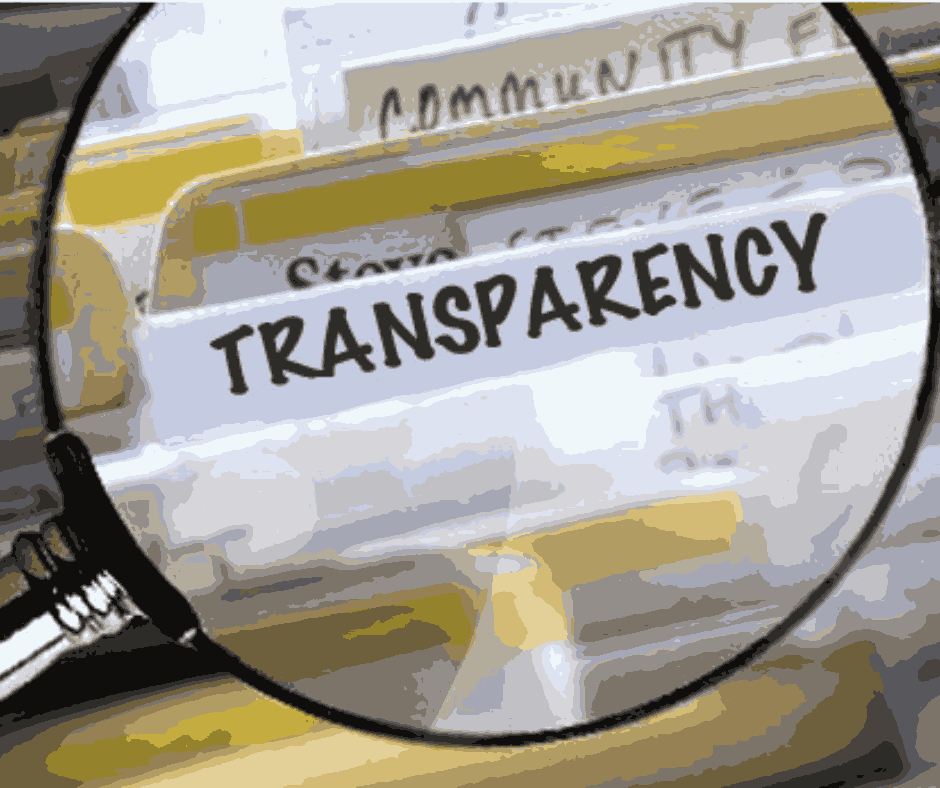In the world of accounting and finance, ethical practices are not just guidelines but fundamental pillars that uphold the integrity and credibility of the profession. Whether you’re a seasoned professional or just beginning your journey in this field, understanding the importance of business ethics is crucial. Here are five reasons why ethics are indispensable in accounting and finance:
1. Ensuring Financial Transparency

Trust in all relationships starts with financial transparency. From an accounting and financial perspective, it shows the image of a company fund in its true form. Ethical accountants strive to prepare all financial statements in compliance with the highest standards so that records do not include any bias or manipulations.
Investors, stakeholders and regulators require these documents to be transparent so they can make well-informed decisions. There would be no basis to trust in commerce without the foundation of business ethics and integrity, and the winds of misinformation could cause financial disasters.
2. Promoting Business Ethics in Accounting And Finance
Business ethics in accounting and finance is about applying moral principles to professional behaviour, including trust around honesty, integrity, fair play and respect for others.
Doing business ethically supports a trusted and responsible culture. Accountants and financial professionals who follow good ethical practices help to prevent fraud and the generation of misleading reports etc. Similarly, this dedication to ethics safeguards the company but also adds value by bolstering its reputation and longevity.
3. Building Business Integrity

Business integrity in accounting is the application of ethical standards that ensure a business conducts itself lawfully, morally, truthfully and fairly as it relates to financial information management and the internal controls process within an organization. This includes a number of core factors:
- Ethical Standards: Demonstrating ethical conduct in financial transactions and reporting, and making certain all activities are in compliance with law, regulations and professional code of conduct.
- Transparency: Revealing financial information clearly, truthfully and completely prevents falsification of or misleading financial reporting. Providing the right financial information to stakeholders helps them with good decision-making.
- Honesty: Truth-telling in all communication and depiction of financial facts and not practising manipulation or falsification of financial data means that the company does not mislead anyone about its financial health.
- Accountability: If anything goes wrong with the financial decisions and their results, then we are responsible for that. Developing strong internal controls is important to prevent and detect fraud or mistakes. You should establish a systematic and comprehensive audit trail of all financial transactions,
- Fairness: Fairness and justice are practised in all situations with respect to investors, employees customers and suppliers. Credit practices do not harm any particular group, either by containing overt discrimination or inadvertently favouring one class of clients over another.
- Compliance: Your transactions and records should be in conformity with the laws and regulations related to accounting & finance in countries all over the world. The company must have the ability to follow up on developments in financial regulations and comply with them promptly.
- Corporate Governance: Creating strong governance structures that monitor financial compliance and ethical practices and ensuring that the board of directors and executive management promote a culture of integrity throughout the organization.
The important thing is doing what is right when nobody is looking. Business integrity includes that accountants working in finance must be honest so that all financial information produced is accurate, and they can also ensure to their clients. This integrity also creates trust with clients, investors and the public – invaluable in a credibility-driven business.
4. Strengthening Corporate Governance
Corporate governance is the system of rules and practices that guide how a company is run and controlled. Good corporate governance involves using ethical management tactics in accounting & finance. This means being honest and transparent in financial reporting, which is essential for trust and integrity.
Ethical practices in corporate governance include:
- Following legal standards
- Avoiding conflicts of interest
- Operating with transparency
By promoting ethical behaviour in accounting & finance, companies can enhance their corporate governance practices. This not only reduces the risk of legal issues but also fosters a culture of honesty within the organization.
5. Preventing Financial Misconduct

Business ethics is crucial in accounting & finance because it helps prevent financial malpractice such as fraud, embezzlement, and other forms of misconduct. Ethical accountants are vigilant in monitoring potential threats and putting measures in place to prevent unethical behaviour.
Here’s why ethics is important in accounting & finance:
- Prevents Fraud and Misconduct: Ethical practices help stop fraud and other financial crimes.
- Protects Assets: By being ethical, accountants help protect a company’s assets.
- Ensures Compliance: Ethical behaviour ensures that the company follows laws and regulations.
- Maintains Fairness: Ethics helps maintain a fair playing field in the market.
Management needs to protect their business from financial exploitation, not only for the company’s benefit but also as a responsibility to the broader economic environment.
The Role of Ethics in Building a Sustainable Future
In the present global economy, we cannot ignore the key role of ethics in accounting & finance. Ethical business practices provide the cornerstone for transparency and responsibility in a more sustainable future, This has the effect of developing more trust in addition to increasing stability across financial markets.
This means that businesses that adopt this value of ethics are more likely to attract and keep skilled professionals with integrity and transparency. In addition, they are more able to cope with regulatory changes and market requirements so that in the long term stay firm.
Conclusion
The point is ethics in accounting & finance are not just a handful of rules; rather they perform the role of building blocks for trust, integrity as well as sustainability a business has to offer!
Ethical practices from making your finances transparent to preventing misconduct are necessary for establishing a reputable and successful organization. With a constantly changing business environment, the role of ethical practice in accounting & finance is likely to be further emphasized while also reaffirming that professionals must remain committed to their respective fields. Ethical behaviour is better for our organisations, and it advances a fairer, more ethical financial system.

